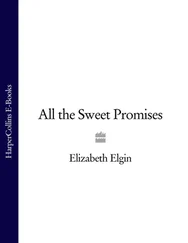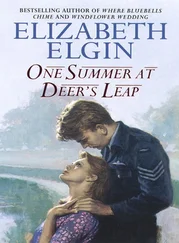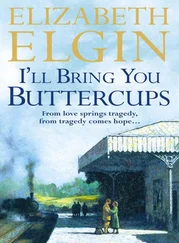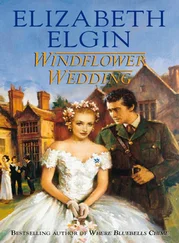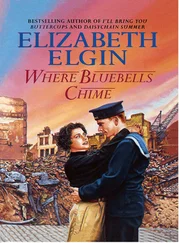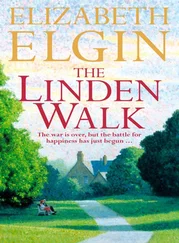‘Looks as if you’re going for the duration,’ Minnie Jepson mourned, pushing past the suitcase that almost blocked the passageway. ‘What ever’ve you got in there, then?’
‘Oh, uniform, mostly.’ Kath smiled. ‘Dungarees and wellingtons and boots. My own underwear, of course. And shirts and socks, and a working jacket …’
‘Hmm. Don’t know why them blokes at the War Agriculture place didn’t think to give you some sort of training. Well, what if they tell you to milk some cows, eh? What’ll you do then?’
‘Don’t really know.’ Trust Aunt Min to put her finger right on it. ‘I suppose I’ll just have to learn, won’t I?’
‘Bein’ on a farm isn’t all collectin’ eggs and having a romp in the hay.’ She took a spoonful of tea from the caddy then shook it level before sliding it into the pot. ‘Evacuees from next door to me came home. Couldn’t stand it. Wet and smelly they said it was. Couldn’t wait to get back to London – bombs or no bombs.’
‘I’ll manage.’ Kath wrapped the knitted holder around the handle of the kettle, pouring carefully. ‘I hope you’ll be all right, Aunt Min. When I decided to join up I didn’t know you’d be coming to live here, though I’m glad you did.’
Very glad. With Aunt Min left in charge, there would be no bombed-out families taking possession of the little house in her absence, she thought gratefully. Aunt Min would keep it clean and warm, though where the old lady would go when the war was over was a problem to be shelved until the war was over. ‘I’ll try to send you something every week to help with the coal and electricity, and I’ve left my address on the mantelpiece so you’ll know where I am. If there’s a phone in the hostel I’ll let you have the number, though I don’t suppose you’ll need to ring me.’
‘Don’t suppose I shall.’ Minnie Jepson was used to managing alone. A childless widow from the last war, she had quickly learned to make ends meet and live from day to day on her pension. ‘And don’t give this house another thought once you’ve left it. I’ll soon have it to my liking, never you fear, girl.’
Housework was Minnie Jepson’s religion. Her London home had been her total joy until a direct hit from a German bomb had forced her to seek shelter with her sister in Birmingham. Indeed, it was as if Fate had intervened on her behalf, for her sister had died peacefully in her sleep not six weeks after, her nephew Barnaby Allen had been despatched to fight the war in North Africa and now young Kath was taking herself off to darkest Yorkshire. It could not have suited her better.
‘I’ll send you a letter every week, Kath, to let you know I’ve got the money all right. And I’ll see your bed is kept aired, just in case they let you home for a holiday, though I don’t suppose they will.’
She gazed unblinking at her nephew’s wife. A good-looking girl, without a doubt. Small wonder Barnaby had courted her with such ferocity and married her with such determination. Dark, almost black hair, yet eyes of blue; so blazingly blue that you couldn’t help noticing them. Thick, dark eyelashes and a nice smile. Irish, those looks were; even her name was Irish. Yet there’d been no one of her own at that hasty little wedding. Only the girl who’d stood bridesmaid for her and even she wasn’t family. Some girl, hadn’t it been, who’d worked as a parlourmaid in the house next door?
‘You can pop a saccharin in my tea,’ she murmured. ‘And give me the second cup. Can’t abide it weak.’
‘Yes, Aunt Min.’ Can’t you wait until I’m out of the house before you take it over? It is Barney’s after all and I am his wife and if anything happened to Barney it would be my house. ‘Are you going to be able to manage on just one ration book when I’m gone?’
‘I’ll be all right. Managed before I was bombed out, didn’t I?’ Of course she would manage. With Kath out of the way and the cleaning and polishing done, there’d be plenty of time to stand in the food queues. It wasn’t a bad way of passing a couple of hours – even in winter. ‘I suppose you’ll be living off the fat of the land? Them farmers’ll have plenty of milk and eggs. Don’t tell me they don’t keep a bit back for themselves.’
‘I really don’t know. But wouldn’t you keep some for yourself now and again? Wouldn’t you treat yourself to a nice fresh egg for your breakfast?’
Fresh eggs. They were a thing of the past to ordinary people. Minnie Jepson reckoned that the weekly egg on her ration book was at least a fortnight old when she got it; stood to reason, didn’t it, the way they smelled when you cracked one? Only fit for putting in a cake – if you had the butter and sugar to spare.
‘What’s a fresh egg?’ she demanded, truculently. ‘And hadn’t you better be thinking about getting yourself off? You can’t rely on a bus being there when you want one; not with a war on, you can’t. That case is going to take a bit of carrying, an’ all. Best be on your way, girl. Take it slowly.’
‘Yes. No use hanging around, I suppose.’ She wished Aunt Min wasn’t so anxious to be rid of her. ‘I’ll just slip across the yard to the lavvy and then I’ll be going.’
She wished the churning inside her would stop. She was always like this when something untoward happened. Like the morning she married Barney. She’d wanted to run away. If she hadn’t been so desperate to leave the house she’d worked in for the past six years, she would have. A skivvy, that’s all she had been. She had exchanged the drabness of the children’s home for the drabness of domestic service and only marriage to Barney had freed her from it. Or so she had thought until he’d taken her to the little house he had promised her. Trouble was, he hadn’t ever mentioned they’d be sharing it with his mother.
She had felt the same churning that day she walked through the doors of the Labour Exchange and told them she wanted to be a landgirl, surprised that she hadn’t needed her husband’s permission. The knowledge had made her feel slightly giddy, because for once she was doing something entirely because she wanted to. She was making only the second important decision in the whole of her twenty-three-and-a-bit years and she had been shaking with the enormity of it when she left the counter; when the clerk had already made an appointment for her medical and there was almost no going back.
‘Ain’t you taking Barney’s picture with you, then?’ Aunt Min took the Clark Gable photograph from the piano top and dusted it absently with her pinafore.
‘I’ve packed one already. I’ll leave that one for you.’ Kath smiled, wishing her heart hadn’t joined the turmoil inside her with loud, insistent thuds. But this was her first real adventure and being in the Land Army was the only taste of freedom she would ever have.
Oh, she was grateful to Barney. He’d given her respectability, a name. She was Kathleen Allen. She knew exactly who she was and that no one could push her around any more – unless she chose to let them. Now she was the same as anyone else. She had the same identity card, the same ration book and from today she would wear the same uniform and get the same pay as all the other landgirls in a hostel called Peacock Hey. For a woman who had never quite known who she was, that was something of an achievement. When the war was over and Barney came home, she would settle down, be a good wife and have his children. When the war was over. In two years, three years, maybe even longer now that Japan had come into it; now that it wasn’t just Hitler they had to see to but all those Japs as well. Funny little slant-eyed men who people said fought and fought and never gave in. How long would it take to beat them , she wondered, even with the Americans on our side.
Читать дальше





